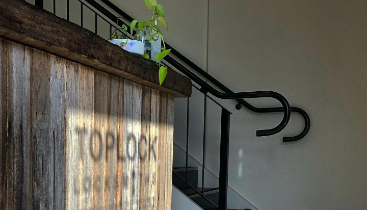- After a burglary has taken place is probably the nastiest time to rekey because it means you’ve been robbed.
- It’s also good to rekey if you’ve lost a set of keys, or even if you think you’ve lost them. We all misplace things. But if it’s keys and you’re not sure, better to be safe them sorry.
- Or let’s say a new worker has been to your house.
- Or perhaps a good friend is all of a sudden not a friend anymore.
Take a look around. If it’s a key and you can’t find it, get rekeyed. As they say, an ounce of prevention!
Here’s another time to rekey your locks: when you move into a new home, whether you’ve bought or rented. People overlook this. Even if you’re purchasing a brand new home, or you’re the first renters in a newly-built apartment complex, someone has entered the premises before you.
This may be the builder, an electrician, plumber, carpenter, etc. Yes, the builder (etc.) is probably reputable. But where has this person’s key ring been? Set down at a restaurant? Left in an unlocked car? You never know. So, the minute you sign on the dotted line, rekey everything. Rekeying is much less expensive than changing all the locks. When people think about rekeying, they think about front door locks.
Rekeying applies to windows and roller doors (such as garage doors).
It also applies to things like remote controls. Finally, the term applies to car keys, and to key cards. If you want to take it to an extreme, a key is a physical code. You change your computer codes, don’t you? If not, you should. Do the same for your home, your business and your car. It is better to do it more often than less. Keys and cards are not expensive.
What’s inside of what they grant access to is. In terms of business applications, you may be concerned that rekeying all the time is a hassle and you may lose track of all the different employees with different keys. There is a way of minimising rekeying every time a staff member leaves. To do this, put all the locks on a restricted keyway.
This helps in four ways.
- First, restricted keys can only be cut by the locksmith who has put the restricted system in place. No other locksmith can cut keys for the system or rekey the locks.
- Second, when you implement a restricted keyway system you must, then and there, decide on signatories. The signatory is you and whomever else you designate to authorize to cut a new key. You sign at the time the system is set up. This stops staff or non-authorized people from getting keys cut. No matching signature, no key.
- The third benefit of a restricted keyway is how it is put together. It’s a very tight lock that is hard to pick. Also, it is almost impossible for anyone other than the person who created it to gain entry without a key. For the curious, here’s how taking one of these locks apart and rekeying it is done.Here’s the first part of the procedure, where your locksmith physically pulls the lock apart. The little bumps on the left hand side of the picture are pins and your locksmith replaces these to create a new key combination. In order to do this, he uses a new physical key.
After the pins are realigned, the barrel is put back into the lock. Your locksmith tests the key that he used to realign the pins, and now you have a newly keyed lock and corresponding key.
- The fourth benefit of restricted keying is fairly straightforward. With a restricted key system you can create a master key that allows access throughout a home or building and have other keys created that only allow entry to specific rooms or areas. Replacement keys are very expensive, so this may not be an ideal solution for commercial environments with high turnover rates. However, if a system that relies on electricity or battery backup is not appropriate, this is a great alternative.

